El Chapo Escaped Prison With Help From “Highest Levels of Government”
Insider Reveals Details about El Chap's Prison Break

Beltrán said “sometimes” the government doesn’t imprison witnesses who could testify against some of its officials. (Diario19)
Avila said in the interview that the news of Guzman Loera’s escape made her “happy,” but that in order to escape he “had to have had help from the highest levels of government.”
“The federal [Mexican] prison system is tough,” she said. “To be able to buy that system? It has to be from high up. Not the director of the prison. Not the guards. It has to be at the cabinet level.”
During the interview published last Monday by The Gaurdian, Beltrán mocked the futility of drug prohibition and criticized corruption among Mexican politicians.
Mexican Teachers Union Punishes “Traitors” with Walk of Atonement
Radical Faction Sought to Teach Them a Lesson on Opposing the Government's "Neoliberal" Education Reform
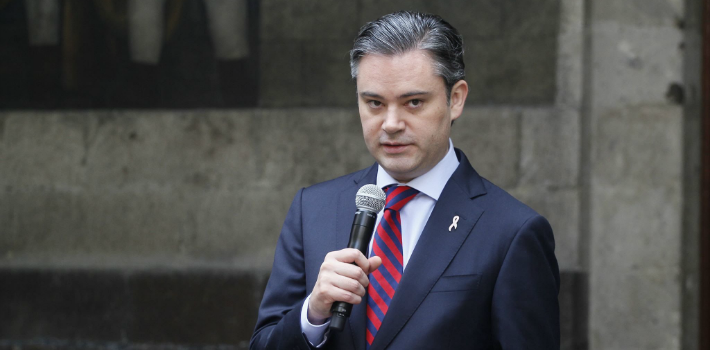
In
addition to shaving the heads of six teachers, union members forced
them to walk barefoot carrying signs that read “traitors.” (yucatan.com)
On May 31, the six school principals and supervisors were travelling from from Comitán to Tuxtla Gutiérrez, Chiapas, to deliver a list of teachers who had not joined the protests when they were taken hostage by a faction of the union, the radical Independent Popular Organization Emiliano Zapata (OPIEZ).
Venezuelan Child Who Protested Medicine Shortages Passes Away
Eight-Year-Old Failed to Receive Drugs, Care to Beat Lymphoma
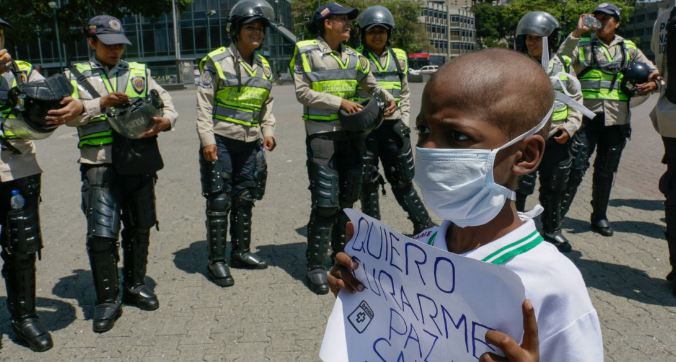
Shortage of drugs led Oliver Sanchez and his family to protest. (El Estímulo)
“I want to get better, peace and health,” Sanchez’s sign read during a demonstration, which made him the face of an unprecedented humanitarian crisis turned Venezuela.
Oliver Sanchez was diagnosed with non-Hodgkin lymphoma just over a year ago, but shortages of medicines needed for treatment led him and his family to participate in the demonstration.
“We are in a desperate situation,” his mother Mitzaida Berroterán said at the time.
Bolivian President to Pursue Second Reelection Referendum
Morales Claims Lies Were Used Against Him During Campaign to Make Reelection Legal
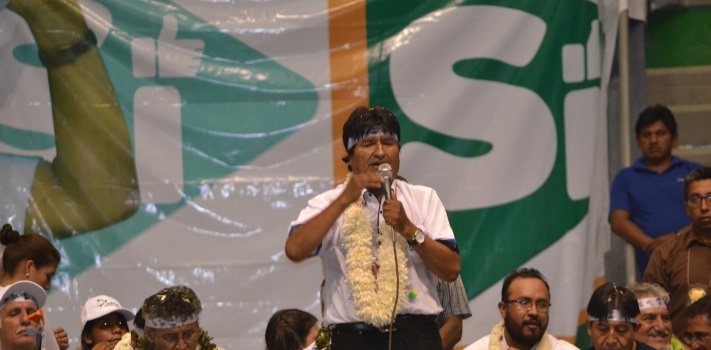
Morales is campaigning for changes to the constitution that would allow him to run again. (Panamericana)
“It’s not a constitutional problem,” Morales said on June 2 of the possibility of a new referendum that could lead to changes to the document and making reelection legal.
Businessman Kuczynski Poised to Become Peru’s Next President
Support from Verónika Mendoza Gave PPK the Edge Over Fujimori

Support from Verónika Mendoza helped PPK beat out the competition. (Perú)
With 92.6 percent of the vote counted, PPK has obtained 50.32 percent of popular support, while the opposing candidate Keiko Fujimori has 49.68 percent.
The ONPE is releasing the results on its website and Twitter account as they come in
According to exit polls, Kuczynski will be the new president. They had him at 50.9 percent of support compared to Fujimori.
Another poll done by Ipsos showed PPK earning 50.4 percent of the votes while Fujimori had 49.6 percent.
The second round of Sunday elections had a turnout of over 22 million Peruvians.
Mexico’s Elections Result in Debacle for Ruling PRI Party
PAN Wins Big in States Historically Dominated by PRI
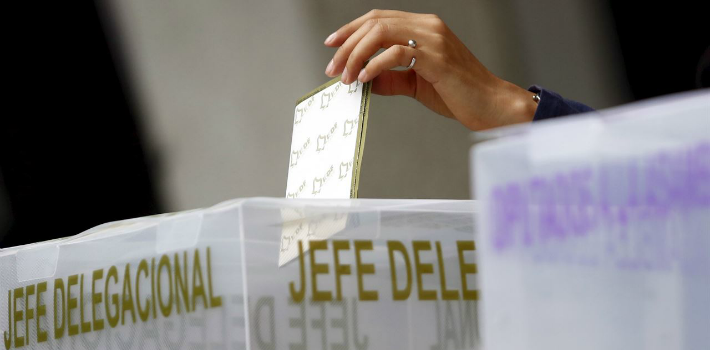
The MORENA party failed to win a single race, but did come in second in Zacatecas. (Notimerica)
The Institutional Revolutionary Party (PRI), eroded by corruption and insecurity, saw their dominance dwindle this time around. According to early counts, there were at least three races in which a party that has never held the office replaced a PRI candidate (Veracruz, Tamaulipas, Quintana Roo). This thanks in part to the right-wing candidates of the National Action Party (PAN) which, after its fall in 2012, seems to be reborn.
NY governor signs pro-Israel executive order to ‘blacklist’ BDS supporters

New York Governor Andrew Cuomo signed an executive order on
Sunday that will penalize people and businesses who support the
non-violent boycott of Israel.
In a speech to The Harvard Club, Cuomo said New York would “lead by example.”
“We are also a place of action,” he continued. “We want to take immediate action because we want Israel to know that we’re on their side. If you boycott against Israel, New York will boycott you.”
The
executive order will instruct the Office of General Services to compile
a list over the next six months of groups, businesses and individuals
supporting the “Boycott, Divestment and Sanctions” (BDS) movement,
according to Haaretz.
After
completion of the process, executive-branch companies will be required
to distance themselves from any organization or person on the list.
“We are also a place of action,” he continued. “We want to take immediate action because we want Israel to know that we’re on their side. If you boycott against Israel, New York will boycott you.”
Hillary Clinton was erratic First Lady, 'violent' to husband, staff - Secret Service author

Hillary Clinton, the frontrunner for the Democratic Party's
presidential nomination, was a volatile and at times violent presence as
First Lady during her husband Bill's two terms in the White House,
according to a new book by an ex-Secret Service agent.
Hillary's
frequent outbursts and a willingness to violently confront her husband
left Secret Service agents and White House staff on edge, writes Gary
Byrne, a Clinton-era Secret Service officer, in his forthcoming book, “Crisis
of Character: A White House Secret Service Officer Discloses his
Firsthand Experience with Hillary, Bill, and How They Operate.”
Byrne, a veteran of the military and federal law enforcement, said he was posted near the Oval Office during Bill Clinton's presidency, affording the agent a firsthand look at Hillary, who he says is too “erratic, uncontrollable and occasionally violent” to become president.
“What I saw in the 1990s sickened me,” Byrne wrote, according to the New York Post, which was offered an advanced copy of the book.
Byrne, a veteran of the military and federal law enforcement, said he was posted near the Oval Office during Bill Clinton's presidency, affording the agent a firsthand look at Hillary, who he says is too “erratic, uncontrollable and occasionally violent” to become president.
“What I saw in the 1990s sickened me,” Byrne wrote, according to the New York Post, which was offered an advanced copy of the book.
You Aren’t Entitled to a College Education
By Abigail R. Hall Blanco

When I graduated from college, reality hit. I was now considered a “real adult.” In a matter of months I’d be moving out of my parents’ basement and some 700 miles away to start graduate school.
I was also struck by something I knew was coming, but hadn’t quite appreciated.
That “something” was my student loans.
There they were in black and white, those things I’d been taking out for some 48 months to pay for a Bachelor’s degree from a small liberal arts university. I owed tens of thousands of dollars and the bill was coming due. (For the record, I could have deferred payment as I was going to graduate school, but chose not to in order to avoid paying more interest.) I remember feeling overwhelmed. I’d never owed that much money in my life!
How Big Is Government in the United States?
By Robert Higgs
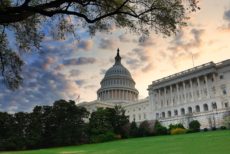
How big is government in the United States? The answer depends on the concept used to define its size. Although many such concepts are available, and several are used from time to time, by far the most common measure, especially in studies by economists, is total government spending (G) as a percentage of the gross domestic product (GDP).
Using official data available at the online repository maintained by the Federal Reserve Bank of St. Louis and data available online for the Bureau of Economic Analysis’s National Income and Product Accounts, I have calculated that for the five-year period 2010-14, this measure of the size of government—including all levels of government, not simply the federal government, and all types of spending, not simply purchases of currently produced goods and services—was 35.8 percent.
There Might Be Dragons (the Fear of Internationalization)
by Jeff Thomas

Subsequently, mariners sometimes adopted the phrase “there might be dragons” if they became concerned for their safety when in unfamiliar waters.
It’s now an archaic saying, yet it’s even more applicable today than in times of yore. There are literally millions of people (particularly in the EU, the U.S. and Canada) who are fearful that their country of residence is becoming increasingly less free and less safe for themselves and their wealth. Some are looking into the prospect of internationalising themselves, but a much smaller percentage actually takes the plunge. Why should this be so? Well, as in centuries past, for many, the reason is that…there might be dragons.
Doug Casey’s Four-Part Plan to Fix a Broken Economy
by Doug Casey

I was invited to a party put on by some of my neighbors. Vintners, horse breeders, ranchers, farmers, and the like. An interesting group. Rich, sophisticated, the local upper crust; I’d only met perhaps a third of them before that evening. It turns out that most of them get together weekly, at one estancia or another, and have an exotic asado cum drinking party. I served as this week’s center of attention and entertainment.
Wheelbarrow Economics
by Jeff Thomas

At the time, I recommended to readers that they “watch the movie” as it was being played out in Venezuela, as it would offer them insight into what was on the way in their own country, should they reside in Europe or North America.
This Could Soon Lead to the Collapse of the U.S. Dollar
by Nick Giambruno

“Read my lips: no new taxes.”
"We were not trading arms for hostages.”
Politicians are professional liars. They do it every day. And they usually do it without any consequences.
I’d bet that Bill Clinton, George H. W. Bush, and Ronald Reagan, who told the three lies quoted above, didn’t think twice about them.
But the lies would all come back to haunt and humble them.
Those words cost Bush senior his reelection.
Congress nearly impeached Clinton.
And the Iran-Contra scandal forced Reagan to apologize on national TV.
The Iran-Contra scandal showed that a strange series of events in a small, obscure, and impoverished country could come back to humiliate the most powerful person in the world.
Predicting the Efficacy of a Coming Revolution
by Jeff Thomas

The revolutions may prove to be violent, or they may prove to be “soft” revolutions – major changes in the political structure. They may vary anywhere from mere changes in the rhetoric of political hopefuls to changes in the actual structure of governments.
One incorrect assumption about revolution is that it took place because the entire population had become dissatisfied. Not so. Most every revolution occurs as a result of a fraction of the population (sometimes a tenth, sometimes a third or more) taking action significant enough to bring about the desired changes.
Explosive Profits Will Be Made in This Crisis Market
Editor's note: In today's Weekend Edition, we're sharing important “intelligence” on the oil crisis…
On Wednesday, we told you that hundreds of U.S. oil companies are in danger of going bankrupt. Below, you’ll learn why Saudi Arabia has a lot to do with that…and more importantly, why this is presenting investors with a huge opportunity.
Nick Giambruno, editor of Crisis Investing, sat down with J. Reeves of the Palm Beach Daily to explain…
(If you’re interested in making extraordinary profits in crisis situations like this, be sure to read to the end, where we detail an incredible offer that closes for good at midnight tonight.)
J. Reeves, editor, The Palm Beach Daily: Nick, Saudi Arabia continues to flood the global market with cheap oil. Why are they doing this right now?
Nick Giambruno, analyst and editor, Casey Research: The Saudis are flooding the market for a couple of reasons.
First, to hurt Russia’s and Iran’s economies. They both depend heavily on oil sales.
The Saudis want to hurt Russia for supporting their regional rival, Syrian President Bashar al-Assad. They want to hurt Iran for the same reason. Iran is the Saudis’ age-old geopolitical rival in the region.
The Saudis have also declared war on the U.S. shale oil industry.
In the 1990s, the U.S. imported close to 25% of its oil from Saudi Arabia. Today—because of high U.S. shale oil production—we only import 5%.
By keeping the market saturated with oil, the Saudis are driving down the price. They hope to drive it down low enough and long enough to bankrupt the shale industry…since shale oil costs more than Saudi oil to produce.
This would knock out a major competitor and let the Saudis regain lost market share.
On Wednesday, we told you that hundreds of U.S. oil companies are in danger of going bankrupt. Below, you’ll learn why Saudi Arabia has a lot to do with that…and more importantly, why this is presenting investors with a huge opportunity.
Nick Giambruno, editor of Crisis Investing, sat down with J. Reeves of the Palm Beach Daily to explain…
(If you’re interested in making extraordinary profits in crisis situations like this, be sure to read to the end, where we detail an incredible offer that closes for good at midnight tonight.)
J. Reeves, editor, The Palm Beach Daily: Nick, Saudi Arabia continues to flood the global market with cheap oil. Why are they doing this right now?
Nick Giambruno, analyst and editor, Casey Research: The Saudis are flooding the market for a couple of reasons.
First, to hurt Russia’s and Iran’s economies. They both depend heavily on oil sales.
The Saudis want to hurt Russia for supporting their regional rival, Syrian President Bashar al-Assad. They want to hurt Iran for the same reason. Iran is the Saudis’ age-old geopolitical rival in the region.
The Saudis have also declared war on the U.S. shale oil industry.
In the 1990s, the U.S. imported close to 25% of its oil from Saudi Arabia. Today—because of high U.S. shale oil production—we only import 5%.
By keeping the market saturated with oil, the Saudis are driving down the price. They hope to drive it down low enough and long enough to bankrupt the shale industry…since shale oil costs more than Saudi oil to produce.
This would knock out a major competitor and let the Saudis regain lost market share.
Why Do We Need Government?
Rousseau was perhaps the first to popularize the fiction now taught
in civics classes about how the government was created. It holds that
men sat down together and rationally thought out the concept of
government as a solution to problems that confronted them. The
government of the United States was, however, the first to be formed in
any way remotely like Rousseau’s ideal. Even then, it had far from
universal support from the three million colonials whom it claimed to
represent. The U.S. government, after all, grew out of an illegal
conspiracy to overthrow and replace the existing government.



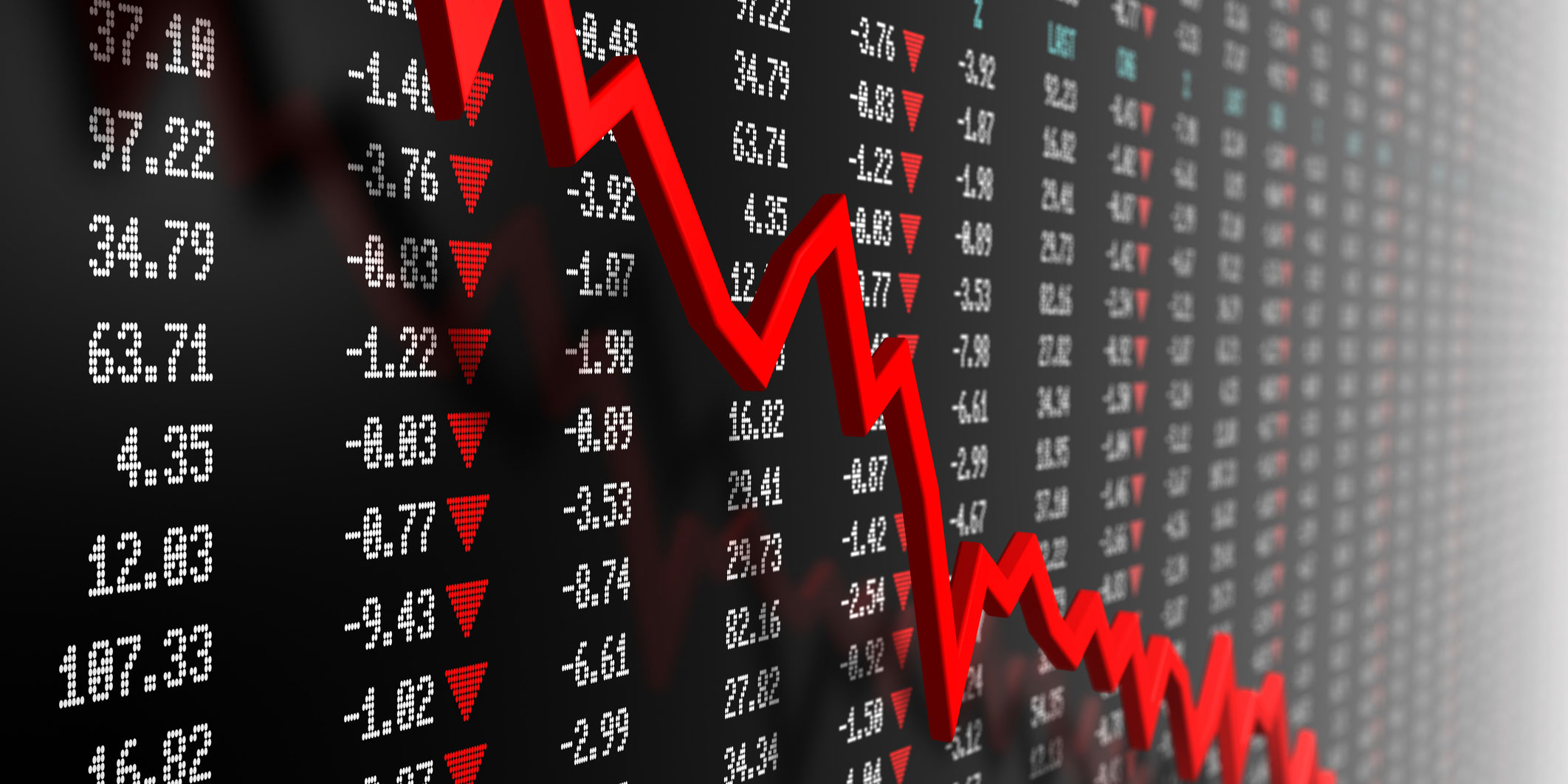





No hay comentarios.:
Publicar un comentario